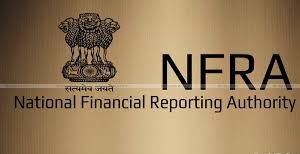Dr. D.M. Misra, Member (J)
1. These appeals are filed against Order-in-Appeal No. COC-CUSTM-000-APP-77 to 99/2020-21 dated 23.09.2020 passed by the Commissioner of Central Excise and Customs (Appeals), Cochin.
2. Briefly stated the facts of the case are that the appellants had filed 23 Bills of Entry between 24.1.2020 to 16.6.2020 declaring the imported items as Palladium (II) Tetra Amine Sulphate classifying the same under Customs Tariff Heading 3824 99 00, Nylon Resin under Heading 3908 10 49 and Gold plating Replenisher Solution under 3824 99 00 claiming benefit of exemption Notification No.25/1999-Cus. dated 28.2.1999 as amended. However, since the exemption was not allowed, they paid Customs duty as assessed under protest and cleared the goods, accordingly. Later, they filed appeals against all assessed Bills of Entry claiming the benefit of Notification No.25/1999-Cus. dated 28.2.1999 as amended by Notification No.36/2019-Cus. dated 30.12.2019 read with corrigendum dated 27.5.2020. The learned Commissioner (A) allowed benefit of the exemption Notification relating to 4 Bills of Entry filed after 27.5.2020, but rejected the benefit of exemption Notification for 19 remaining Bills of Entry filed during the period from 24.01.2020 to 22.05.2020 observing that the Corrigendum is prospective in nature. Hence, these present appeals.
3. At the outset, learned advocate Shri Ravi Raghavan for the appellant submits that they have availed the benefit of Notification No.25/1999-Cus. dated 28.2.1999 against Sl. No. 46, 131 and 225 of List A appended for all these products in the past uninterruptedly. By issuance of Notification No.36/1999-Cus. dated 30.12.1999 there was no change in the Entry at Sl. No. 46, 131 and 225 covering the products in question. There was some confusion in the amended Notification No.36/1999- Cus. dated 30.12.1999 relating to Entry No.1 which has been corrected/rectified subsequently by issuance of Corrigendum dated 27.5.2020. It is his contention that the Corrigendum is not a fresh Notification but it should be read back to the date, when the Notification is issued correcting the error/mistake in the said Notification No.36/1999-Cus. dated 30.12.1999. In support of his contention that Corrigendum has retrospective effect from the date of issuance of original Notification, he referred to the judgment of the Hon’ble Karnataka High Court in the case of Jubliant Organosys vs. Assistant Commissioner: 2012 (26) ELT 335 (Kar.), which has been followed subsequently by the Hon’ble Allahabad High Court in the case of Polyplex Corp. Ltd. vs. UOI: 2014 (306) ELT 377 (All.).
4. The Learned Authorised Representative for the Revenue reiterated the findings of the learned Commissioner (A).
5. Heard both sides and perused the records. The short question involved in the present appeal is: whether the appellant is entitled to the benefit of Notification No.25/1999-Cus. dated 28.2.1999 as amended by Notification No.36/1999-Cus. Dated 30.12.1999. The benefit of the said Notification was denied considering that due to realignment of the Tariff Heding under the Customs Tariff Act with effect from 01.01.2020, the amended Notification did not mention the correct tariff entry at Sl. No.1 of the said Notification. Consequently, a Corrigendum was issued on 27.5.2020 rectifying the mistake in the said Notification. The Bills of Entry were assessed without extending the benefit of the Notification for the clearances made between January 2020 to 22.5.2020, hence the imported goods were cleared on payment of duty without the benefit of the said Notification. Subsequently, the said assessed Bills entry were challenged before learned Commissioner (A) and the learned Commissioner (A) allowed the benefit of exemption Notification, post issuance of the Corrigendum i.e., 27.5.2020 observing that the Corrigendum is prospective in nature and not applicable to clearances prior to the said date. We do not find merit in the findings of the learned Commissioner (A) in as much as the Corrigendum is issued to correct the error/mistake in the Notification, noticed subsequently and hence the corrections be effective from the date of the issuance of the original Notification. This view has been held by the Hon’ble Karnataka High Court in the case of Jubliant Organosys (supra) held that:
“10. As has been discussed above, a corrigendum in question has been issued for correction of the notification and it relates back to the date of the notification corrected. It ceases to be a correction if it is effective from the date of its issuance. It then becomes an amendment. A correction relates back to the date of the notification itself. If that is so, the order of the appellate authority as also the revisional authority are contrary to the notification dated 29-11-2002.”
The said principle has been followed subsequently by the Allahabad High Court in the case of Polyplex Corp. Ltd. (supra).
6. Following the above principle laid down by the Jurisdictional High Court, we do not find merit in the order of the learned Commissioner (A) holding that Corrigendum dt. 27.05.2020 is prospective in nature. Consequently, the order of the learned Commissioner (A) denying the benefit of the Notification No.25/1999-Cus. dated 28.2.1999 as amended, is hereby set aside and we hold that the appellants are eligible to the benefit of the said Notification for the disputed 19 Bills of Entry filed during the period from 24.01.2020 to 22.05.2020.
7. In the result, appeals are allowed with consequential relief, if any, as per law.

